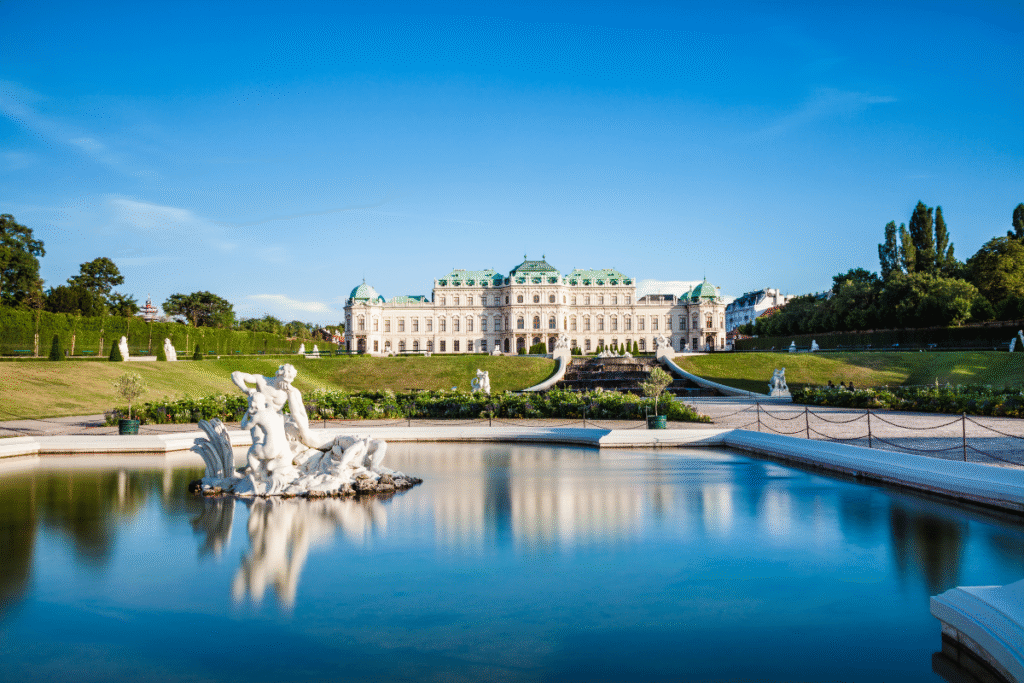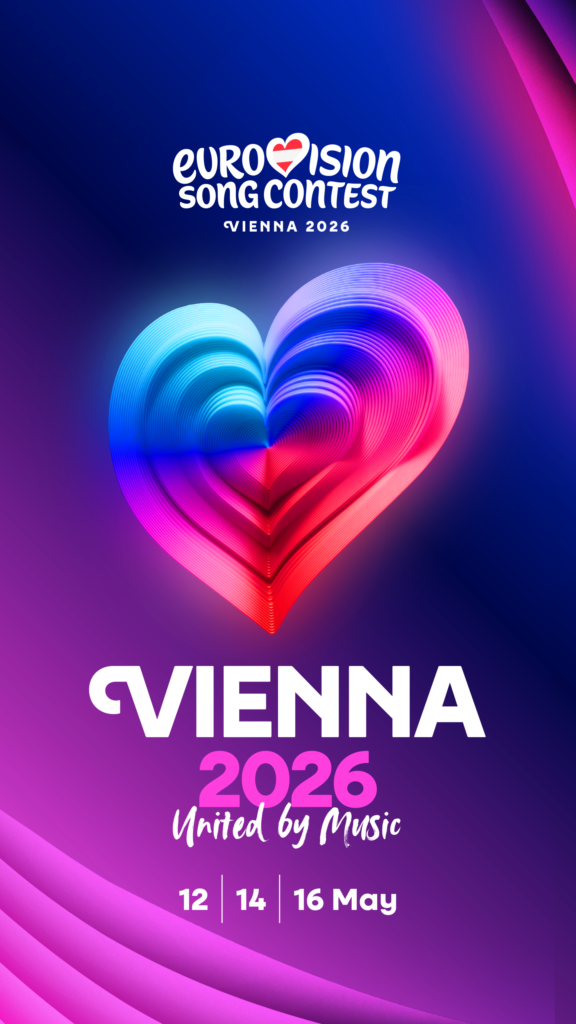Look, Eurovision heads, an unwarranted rebrand won’t fix the contest’s ongoing issues. It just won’t, plain and simple. This week, we Eurovision fans learned not only that Vienna will host the 2026 contest, but also about its new logo. And I have to ask… who inside the EBU approved this? WHO?! Once again: this won’t fix anything.
Europe’s longest-running entertainment TV program faces a massive reputational challenge, one that the European Broadcasting Union has been unable to address effectively. Truly, it’s incredible what we’re witnessing. The most they’ve done is benefit from hosting the most recent edition in a neutral country and enacting a Code of Conduct in due time.
Martin Green, a renowned British TV producer, was named the contest’s Director about a year ago. Alongside former Executive Supervisor Martin Österdahl, the Swedish TV executive who oversaw the contest between 2020 and 2025, they implemented changes that appeared more symbolic than substantive. The aftermath of the controversy surrounding Israel’s participation, following the ongoing situation in Palestine, still lingers. Having an Israeli company as the primary sponsor has arguably caused more reputational damage than benefits.
The 2024 contest in Malmö, Sweden, was not only a security nightmare for contestants and audiences alike but also amplified the brand and reputational issues that the EBU has largely ignored.

Hypocrisy ≠ Good
Allowing certain countries to compete amid heavy international scrutiny is not new. For instance, Russia was expected to attend the 2017 competition in Kyiv but withdrew weeks before the event. Similarly, when the invasion of Ukraine occurred in 2022, the contest organizers acted quickly to ban Russia’s participation and membership.
However, the siege and invasion of Gaza in late 2023 were treated differently. The EBU allowed Israel to participate in Sweden in 2024, ignoring fan demands and outspoken public pressure for their removal.
This blatant hypocrisy sparked global controversy. Eurovision isn’t the only event to overlook such conflicts—recall last summer’s Olympics in France—but for a competition that has long championed unity and diversity, this sets a worrying precedent.
Security concerns in Malmö were severe. Swedish organizers spent an additional €2 million on safety measures. Contestants were banned after incidents, and both participants and journalists demanded accountability from the problematic delegation. Protests occurred both before and during the competition, calling for Israel’s removal from Eurovision.

Who Asked For a Rebrand?
Seriously, who approved these branding changes? The new design decisions are baffling from a creative professional’s perspective. Meanwhile, the contest’s deeper reputational issues remain unaddressed.
Yes, the contest will celebrate its 70th anniversary next year.
Yes, the EBU wants to do something special.
Yes, a rebrand might fit that type of narrative.
But again: who asked for the Eurovision Song Contest to be rebranded?
A new logo, custom font, and stronger intellectual property protections are cosmetic fixes that don’t address the underlying problems the Eurovision Song Contest currently faces. Mr. Green’s vision feels plain and uninspired for a contest that celebrates the strength of language, culture, and diversity across Europe—and Australia.
What’s Next?
At this point, only time will tell what will actually end up happening.
Will Israel secure the win they’ve been vying for since 2024? Possibly.
Will another scandal arise? Hopefully not. If that country wins, we’ll have to wait and see the consequences amongst fans, participating broadcasters, and the culture.
All we can hope is that the 70th edition in Vienna next May does not mark a breaking point for the Eurovision Song Contest.
I wrap this blog entry, with the official announcement of Vienna, Austria as the Eurovision 2026 host city.
